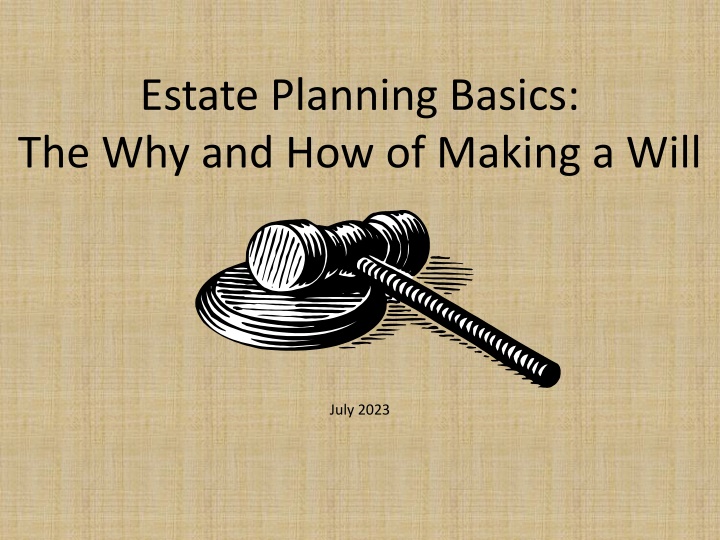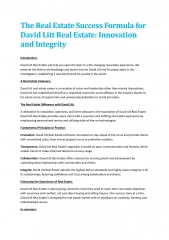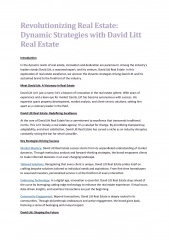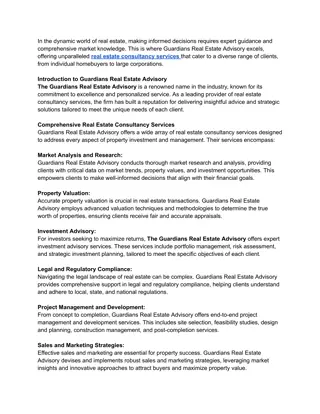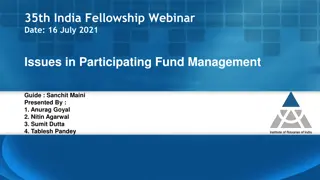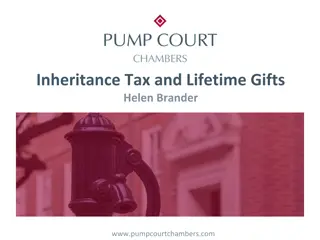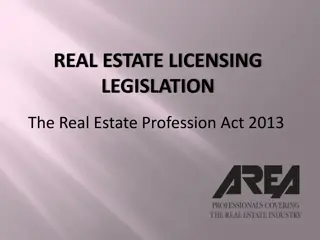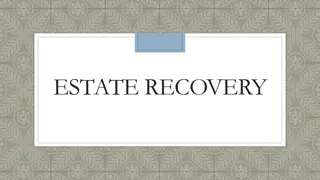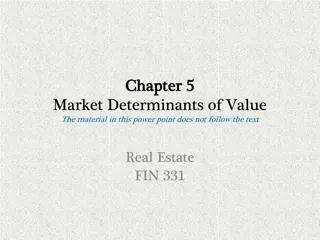Estate Planning Basics: The Why and How of Making a Will
Learn about the key terms in estate planning, why making a will is important, general requirements for wills to be valid, and testamentary capacity under the law. Understand the significance of being a steward of your assets and the importance of planning for the future.
Download Presentation

Please find below an Image/Link to download the presentation.
The content on the website is provided AS IS for your information and personal use only. It may not be sold, licensed, or shared on other websites without obtaining consent from the author.If you encounter any issues during the download, it is possible that the publisher has removed the file from their server.
You are allowed to download the files provided on this website for personal or commercial use, subject to the condition that they are used lawfully. All files are the property of their respective owners.
The content on the website is provided AS IS for your information and personal use only. It may not be sold, licensed, or shared on other websites without obtaining consent from the author.
E N D
Presentation Transcript
Estate Planning Basics: The Why and How of Making a Will July 2023
Key Terms (informally) Defined: Estate: All of your stuff property, money, online accounts, etc. Will: Written document directing what happens to your stuff* after you re gone, and who is responsible for carrying out those directions. Codicil: An amendment to an otherwise valid will. Executor: The person responsible for dividing up your stuff as instructed in your will. Intestacy Laws: The laws that determine what happens to your stuff* if you don t make a will. Probate: A court-supervised process for validating a will, settling debts, and dividing up your remaining stuff. Beneficiary: A person (or entity) who gets something from your estate. Devise: A gift of real property (land and stuff attached to it). Bequest: A gift of personal property ($$$, stock, cars, etc). Residuary: Everything left over after devises and bequests Trust: An alternative mechanism for controlling your stuff, in life or death. Advance Health Care Directive: A document that specifies what to do if you become incapacitated, incompetent, or otherwise unable to communicate your wishes.
Why Should I Make a Will? Some believe that they do not need a will because: they are young and healthy; or they do not have many lots of money or possessions; or they see estate planning as primarily an exercise in control over things they won t care about or need when they are dead. Ultimately, however, making a will is not about control, or how likely you are to die, or how much stuff you have. It really isn t about you at all. It is about being a steward over that which God has entrusted to you, and about the love you have for Him, and all those (His children) you leave behind. 1 Timothy 6:7 2 Nephi 9:51 1 Timothy 5:8 Mosiah 4:14-15 2 Nephi 13:13-14 Doctrine & Covenants 64:29-31
General Requirements for Wills To be valid, a will must meet the requirements of state law, which vary. States generally require that: The testator (individual making the will) have the capacity required to make a will. The will be properly drafted, signed, and witnessed The will be of a type recognized in the jurisdiction where it is executed.
Testamentary Capacity Under the Uniform Probate Code (a common benchmark) the testator must: Be at least 18 years of age. Be of sound mind. State common law generally determines soundness of mind and typically requires that the testator generally understand certain key information at the time the testator executes the testator's will, which can include: The nature and consequence of executing a will. The property that the testator owns. Who would naturally inherit the testator's property. The capacity requirement generally applies only when the will is made; not before or after its signing.
Procedures for Executing a Valid Will To be valid, a will must meet the execution requirements under state law, which can vary. Under the UPC, the will must be: In writing. Signed by the testator (or signed by another person in the testator's presence at the testator's direction). Signed by two or more credible, disinterested witnesses in the testator's presence.
Types of Wills Certain types of wills may be treated differently under state law. These include: Out-of-State Wills: wills that were signed in a state other than the state the testator resided in at death. Holographic Wills: a handwritten will signed by the testator but not witnessed or otherwise formally executed. Nuncupative Wills: an oral will. Contractual Wills: contractual agreements by the testator to make or revoke a testamentary disposition, not to revoke a testamentary disposition, or to die intestate. State law varies regarding the validity of contractual wills Statutory Wills: wills that follow prescribed language set out in a state statute. Electronic Wills: wills that were written, signed, and/or attested and stored using electronic means.
A Will Should be Part of Every Estate Plan A will may not control all of a decedent's assets on death. Certain assets pass under a will and others do not. For example, property does not pass by will if it: Is held in a trust. Is held jointly with rights of survivorship. Has a beneficiary designation. However, sometimes property that you believe will pass outside of probate does not pass as intended. In this case, a court proceeding generally is required and, without a will, the property passes by intestacy. A will controls the assets that are owned by the decedent at death and that do not pass by survivorship or beneficiary designation. Assets that pass under the will are called probate assets. In addition to the typical assets that a person may own at death, probate assets may include refunds issued to the decedent after date of death, such as income tax refunds, overpayments of insurance and other premiums, utility account refunds, and overpayments of monthly rent at assisted living facilities and nursing homes. For this reason, even a testator who believes the testator will have no probate assets at death should execute a simple will to dispose of any assets that the testator receives unexpectedly. Similarly, a testator who uses a trust as the testator's primary estate planning vehicle should have a pour-over will to provide for assets not transferred to the trust during life.
Making a Basic Will: A Basic Checklist Make a list of all stuff and people (see handout #1) Assess current & future needs, and decide how to divide and provide People first, stuff second* Consider contingencies Write it Down A typical will: Nominates fiduciaries , including personal representatives, executors, guardians, trustees, and custodians Makes specific bequests and a residuary bequest of the balance of the estate Addresses disinheritance, as applicable May include a testamentary trust No legal jargon or specific terminology is required. Clear, simple language is best. Sign it in front of two disinterested witnesses Put it somewhere safe, and let the executor know
What If Things Change? Abatement When an estate does not have sufficient funds to cover debts, expenses and all bequests, some or all of the bequests in the will may abate. State statute provides an order of abatement which may be changed by directing so in the will. The default order under the UPC is (1) property not disposed of by the will, (2) residuary dispositions, (3) general dispositions, (4) specific dispositions. Ademption When you make a specific gift of property in your will, but no longer own that property at death, the gift may adeem. States often have exceptions, such as for sales that are not final, insurance proceeds, and securities. Lapse When a beneficiary dies before you, the gift generally lapses and passes with the residue of the estate. To prevent this from happening, many states have anti-lapse statutes that provide for the beneficiaries descendants to take the gift. You may also provide contingency provisions to avoid the default under state anti-lapse laws. Modification or Revocation Wills are generally fully revocable and may be modified at any time until you die. You can modify an existing will by either a codicil or a new will. A codicil amends an existing will and is considered part of the same legal instrument. A will may be revoked by a later letter, or a physical act of destroying the document. In limited circumstances, revoked wills may be revived.
Effect of Subsequent Life Events Certain life events that take place after you execute a will could change the terms of the will. Marriage, birth, adoption, divorce, or annulment all can affect your existing will. Unless otherwise specified in the will: Spouses and children who join your family after you execute your will are usually entitled to statutory inheritances. Divorce or annulment generally revokes revocable gifts, powers of appointment, and fiduciary nominations. If your life circumstances change substantially, you should change your will.
What We Didnt Discuss There is a lot of important ground we didn t cover today. This includes: Estate Taxes and other Tax Planning Considerations Trusts Credit Shelter, QTIP, Clayton Provisions, etc. Community Property Non-probate instruments Much more
The End Q & A
